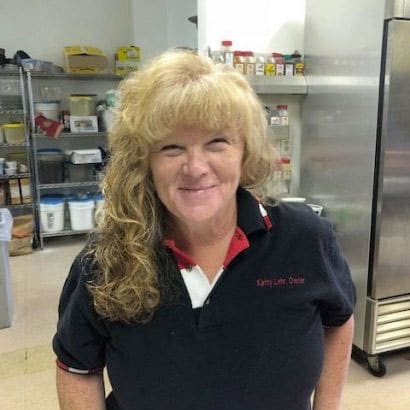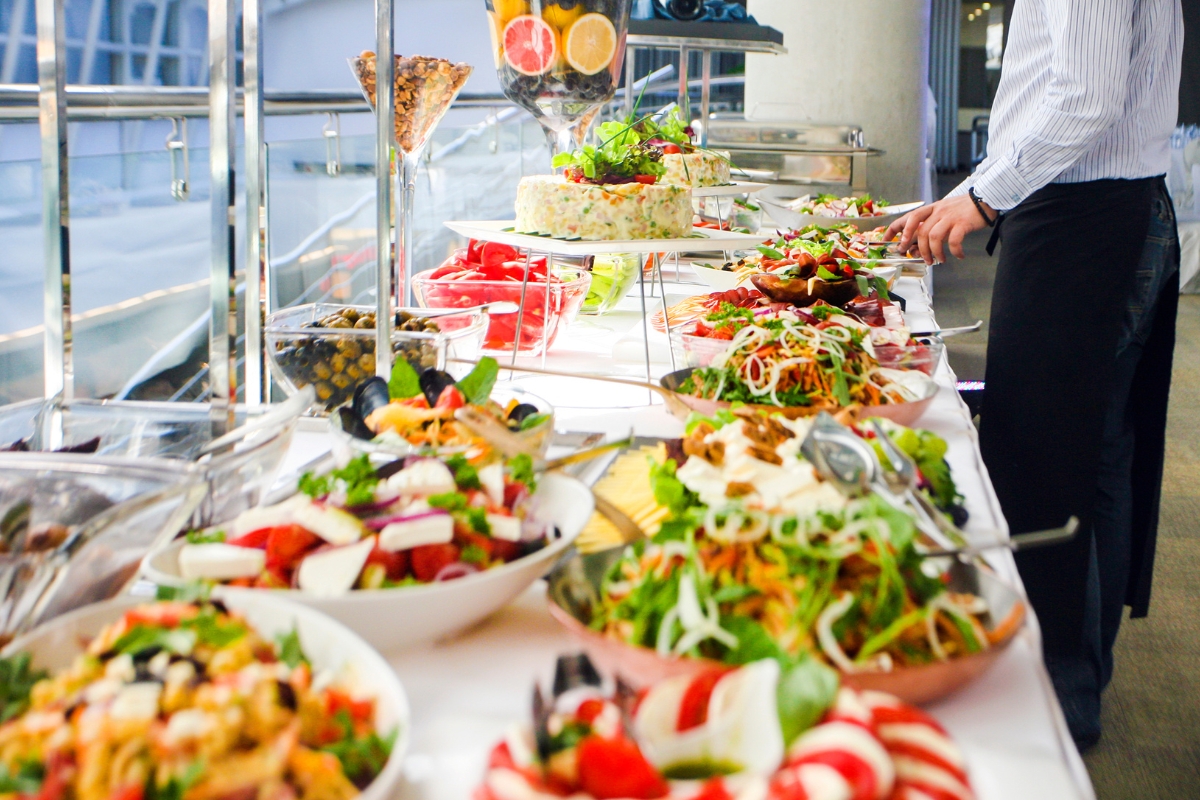In the fast-paced world of event planning, there’s one challenge that often goes unnoticed but can have a significant impact on both the environment and your bottom line: catering food waste. Yes, you read that right. Food waste from events, such as conferences, weddings, and corporate gatherings, can add up quickly, contributing to a staggering amount of waste that ends up in landfills. This not only strains our planet’s resources but also represents a significant financial loss for event planners.
But fear not, because in this blog post, we will uncover some smart solutions to tackle the issue of catering food waste head-on. In the following sections, we will dive deep into the realm of cutting down catering food waste, exploring the smartest solutions that will help you become a pioneer in sustainability without compromising on the quality and success of your events. Together, let’s pave the way towards a greener future, one eco-friendly event at a time.
Catering Food Waste: How to Minimize Environmental Impact and Maximize Efficiency
The Impact of Catering Food Waste on the Environment and Finances
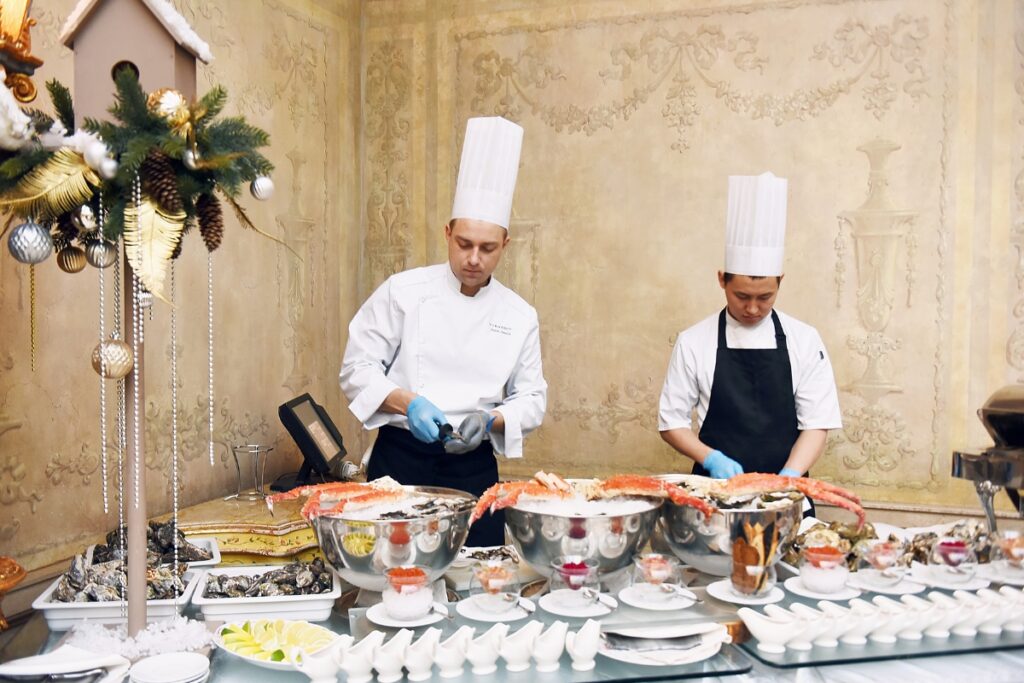
Catering food waste has a significant impact on both the environment and the finances of event planners. When food is wasted, it ends up in landfills, contributing to greenhouse gas emissions and putting a strain on our planet’s resources. According to the Food and Agriculture Organization of the United Nations, approximately one-third of all food produced for human consumption is lost or wasted globally. This represents a massive loss of resources, including water, energy, and labor.
From a financial perspective, catering food waste can be a substantial expense for event planners. The cost of purchasing ingredients, preparing meals, and serving them to guests can quickly add up. When uneaten food is thrown away, it not only represents a loss in terms of money spent but also missed opportunities for cost savings.
By understanding the impact of catering food waste on both the environment and finances, event planners can take proactive steps to minimize waste and maximize efficiency.
Understanding the Challenges Faced by Event Planners in Minimizing Food Waste

Event planners face numerous challenges when it comes to minimizing food waste in catering. The issue of catering food waste has gained attention due to its negative impact on the environment, resources, and overall sustainability. Understanding these challenges is crucial for event planners to implement smart solutions and reduce food waste effectively.
One of the major challenges faced by event planners is accurately estimating the amount of food required for an event. It can be difficult to predict the exact number of attendees and their preferences, leading to overordering or underordering food. This often results in surplus food that goes to waste or insufficient food that leaves attendees unsatisfied. To overcome this challenge, event planners can use data from past events, conduct surveys, or collaborate with experienced caterers to better estimate the food quantity.
Another challenge is managing food storage and transportation. Catering involves handling perishable items, and improper storage or transportation can lead to food spoilage. Event planners need to ensure that the catering provider follows proper storage and transportation practices to maintain food quality and minimize waste.
Additionally, having contingency plans in case of unexpected changes, such as a decrease in attendance or last-minute cancellations, can help prevent excessive food waste.
During the event, buffet-style setups can also contribute to food waste. Guests may take more food than they can consume, leading to leftovers that are often discarded.
Event planners can address this challenge by offering smaller portion sizes, providing clear signage on portion recommendations, or implementing a “serve yourself” system where guests can choose the quantities they desire. By promoting mindful eating habits, event planners can significantly reduce catering food waste.
Communication plays a vital role in minimizing food waste as well. Event planners need to effectively communicate with caterers, venue staff, and attendees about the importance of reducing food waste.
Educating staff and attendees about the environmental impact of food waste and encouraging them to take only what they can eat can lead to a more conscious approach towards catering. Moreover, event planners can collaborate with local food banks or organizations to donate excess food, ensuring it goes to those in need instead of being wasted.
Technology can also be leveraged to tackle the challenges of catering food waste. Event planners can use event management software or apps that allow them to track and manage food orders more efficiently. These tools can help in accurate inventory management, reducing the chances of overordering or underordering. Additionally, incorporating sustainable practices such as using biodegradable or compostable food packaging can further minimize the environmental footprint of catering events.
Using Precise Forecasting Techniques to Reduce Overproduction

Precise forecasting techniques play a crucial role in reducing overproduction and minimizing catering food waste. Event planners have the responsibility to ensure that there is just enough food to satisfy the guests’ appetites without going overboard. By implementing smart solutions and leveraging forecasting techniques, event planners can effectively cut down on catering food waste and contribute to a more sustainable event industry.
One of the key techniques for reducing overproduction is accurately estimating the number of attendees. By gathering reliable RSVP data and considering factors such as historical attendance rates and the nature of the event, event planners can make informed decisions on how much food to order and prepare. This prevents the unnecessary excess that often leads to food waste.
Additionally, event planners can collaborate closely with catering companies and suppliers to better align the quantities of food with the actual demand. Clear communication regarding the expected number of attendees, dietary restrictions, and menu preferences allows for a more accurate production plan. With this information, caterers can adjust their portions accordingly, avoiding the temptation to overproduce and ensuring that the food served perfectly matches the guests’ needs.
Another effective technique is menu planning. By carefully designing a menu that offers a variety of options while optimizing ingredient usage, event planners can significantly reduce food waste. Incorporating dishes that can be easily scaled up or down based on the confirmed attendance helps maintain flexibility and prevents unnecessary leftovers.
Moreover, event planners can explore innovative solutions to repurpose or donate surplus food. Partnering with local food banks or charities not only minimizes food waste but also contributes to feeding those in need. By incorporating these partnerships into event planning strategies, event planners can make a positive impact on their communities while reducing overproduction.
In order to implement precise forecasting techniques successfully, event planners can also leverage technology solutions. Event management software and tools can streamline RSVP tracking, automate data analysis, and provide real-time insights on attendance trends. This enables event planners to make more accurate forecasts and adjust their food orders accordingly.
Implementing Sustainable Menu Planning Strategies

Sustainable menu planning is a powerful strategy for reducing catering food waste. By carefully designing menus that prioritize seasonal, locally sourced ingredients, event planners can minimize the environmental impact associated with food production and transportation.
Incorporating plant-based options or offering vegetarian/vegan meal choices not only caters to a wider range of dietary preferences but also reduces the carbon footprint of the event. Plant-based meals generally require fewer resources to produce compared to meat-based dishes.
Additionally, implementing a “less is more” approach by simplifying menus and focusing on quality rather than quantity can help prevent overproduction and ensure that guests fully enjoy each dish served.
Reducing Portion Sizes and Offering Customizable Options
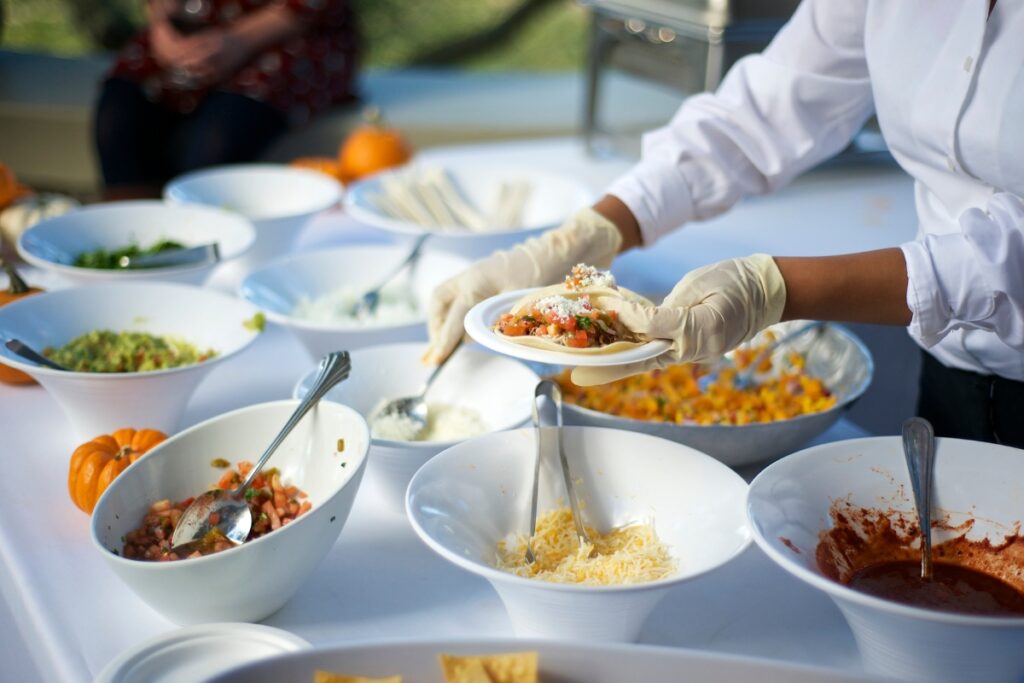
When it comes to catering food waste, one effective strategy that event planners can implement is reducing portion sizes and offering customizable options. By doing so, not only can they minimize the amount of food that goes uneaten, but they can also cater to a wider range of dietary preferences and restrictions.
One of the main reasons why catering events often result in significant food waste is because portion sizes are often too large. Many attendees are unable to finish their meals, leading to a substantial amount of uneaten food being thrown away. To address this issue, event planners can consider offering smaller portion sizes. By providing more reasonable servings, guests are more likely to finish their meals, reducing overall food waste.
Another approach to tackling catering food waste is by offering customizable options. This involves allowing guests to choose the components of their meals based on their preferences and dietary needs. By offering a variety of proteins, sides, and toppings, guests can create their own personalized meals. This not only ensures that every plate is enjoyed but also minimizes the chances of food being left untouched.
Customizable options also cater to a variety of dietary restrictions and preferences, such as vegetarian, vegan, gluten-free, or dairy-free. By providing these choices, event planners can accommodate a wider range of guests, ensuring that everyone can enjoy a delicious meal without the need for excessive food preparation. This approach not only reduces food waste but also enhances the overall dining experience for attendees.
In addition to reducing portion sizes and offering customizable options, event planners can also implement other measures to further minimize catering food waste. These include careful menu planning based on guest counts, utilizing leftovers creatively, and partnering with local food banks or charities to donate any excess food.
By adopting these strategies, event planners can significantly reduce catering food waste and contribute to more sustainable and environmentally friendly events. Not only will they be able to cut down on the amount of food that ends up in the trash, but they will also create a more inclusive dining experience for all attendees. So, the next time you’re planning an event, consider reducing portion sizes and offering customizable options for a greener and more enjoyable catering experience.
Donating Excess Food to Local Charities and Non-Profit Organizations
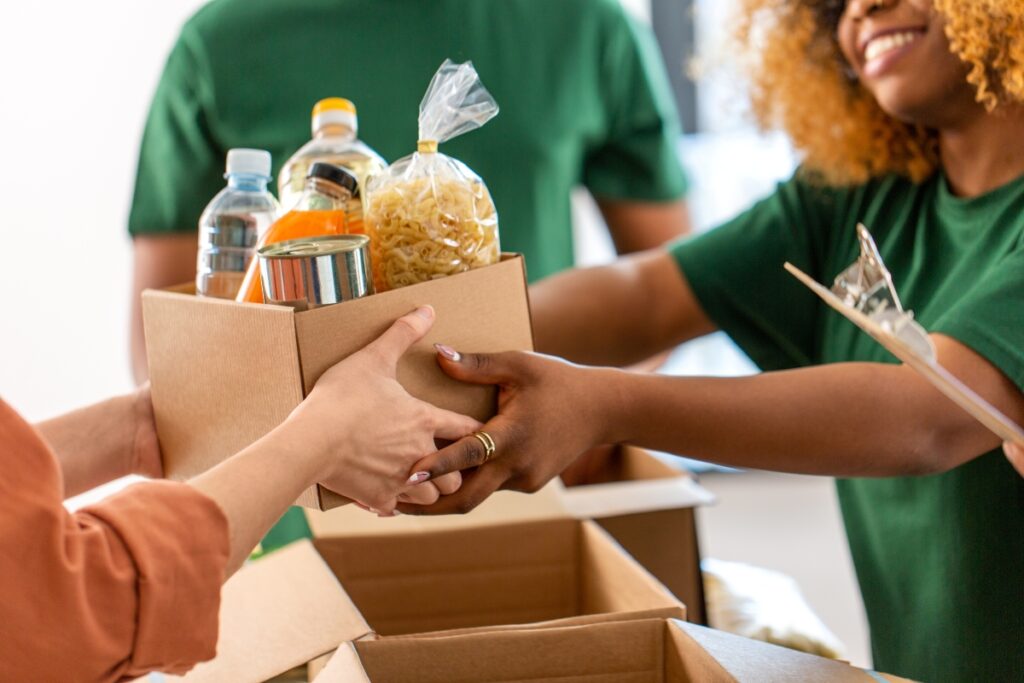
When it comes to catering events, one of the major challenges faced by event planners is dealing with excess food waste. However, there are smart solutions available that not only address this issue but also contribute to the welfare of the community. One such solution is donating excess food to local charities and non-profit organizations.
By donating excess food, event planners can ensure that perfectly good food does not go to waste. Instead, it can be redirected to those who need it the most. Local charities and non-profit organizations often work tirelessly to support vulnerable individuals and families, and by partnering with them, event planners can make a significant difference in reducing food insecurity.
To make the most impact, it is important to establish strong relationships with local charities and non-profit organizations. This involves researching and identifying trustworthy and reliable partners who are equipped to handle food donations. Many organizations have specific guidelines and procedures in place for accepting food donations, so it is essential to familiarize oneself with their requirements.
In addition to building relationships, event planners should also ensure proper food handling and storage practices to maintain the quality and safety of donated food. This includes adhering to food safety regulations, using appropriate packaging and containers, and coordinating timely pickups or deliveries with the receiving organizations.
Donating excess food not only helps those in need but also contributes to a more sustainable and environmentally friendly approach to catering events. By diverting food from landfills, event planners can significantly reduce their carbon footprint and promote a circular economy.
Furthermore, donating excess food can also have positive social and reputational benefits. It showcases the event planner’s commitment to community welfare and highlights their corporate social responsibility. This can lead to increased trust and loyalty from clients and attendees who appreciate and support businesses that prioritize giving back.
Embracing Efficient Food Handling and Storage Practices

Efficient food handling and storage practices are crucial in minimizing catering food waste. Event planners should ensure that all staff members receive proper training on safe food handling techniques, including temperature control, hygiene practices, and proper storage procedures.
Investing in high-quality storage equipment such as refrigerators or freezers with adjustable shelves or compartments can help preserve the freshness of perishable items. Proper labeling systems can also prevent confusion or misplacement of ingredients, reducing the likelihood of spoilage.
In addition, establishing clear communication channels between the kitchen staff, serving staff, and event organizers is essential for efficient coordination during meal preparation and service. This helps avoid unnecessary duplication or errors that may lead to excess production or wasted resources.
Educating Staff and Guests on the Importance of Reducing Food Waste

Educating both staff members and guests about the importance of reducing catering food waste is key to creating a culture of sustainability within the events industry. By raising awareness about the environmental impact of food waste and highlighting the financial benefits associated with waste reduction, event planners can inspire behavioral changes.
Training sessions or workshops can be organized to educate staff members about the significance of their roles in minimizing waste and implementing best practices. This includes proper portion control, efficient food handling techniques, and effective communication throughout the event.
Engaging guests through informative signage, digital displays, or interactive activities can also help convey the message of sustainability. By encouraging guests to take only what they need and providing information about the event’s commitment to reducing food waste, event planners can foster a sense of responsibility among attendees.
Conclusion: Becoming a Pioneer in Sustainability as an Event Planner
Catering food waste has a significant impact on both the environment and finances of event planners. However, by understanding the challenges faced and implementing smart solutions, event planners can make a positive impact while still delivering exceptional experiences for their guests.
Precise forecasting techniques, sustainable menu planning strategies, portion size reduction, food donation programs, efficient handling and storage practices, and educational initiatives are all powerful tools that event planners can utilize to cut down on catering food waste.
Ready to make a positive impact on your next event? Choose A Delightful Bitefull Catering for top-notch catering services and eco-friendly solutions. Contact us at (770) 565-4146 or fill out our online form to get started on planning your sustainable event today. Don’t miss out on the opportunity to reduce food waste and create unforgettable experiences with A Delightful Bitefull Catering.


